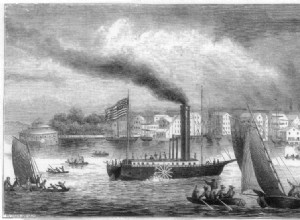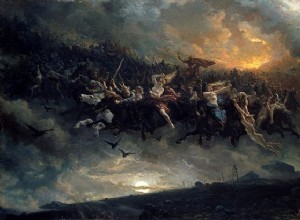Robert Fulton , American engineer, was recognized as the inventor of the commercial steamboat in 1806 (the River Steamboat ). He patented the invention and obtained the exclusive on the New York boat supply. River Steamboat He also designed the first steam-powered warship called Demologos , alt




